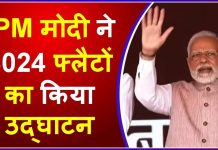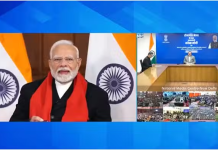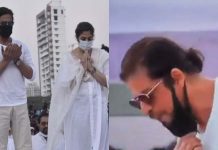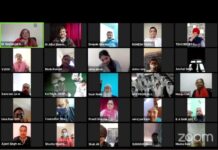New Delhi, January 10: Justice UU Lalit, who was part of a five-judge Constitution Bench to hear the Ram Janmabhoomi-Babri Masjid land title dispute matter, on Thursday recused himself, prompting the Supreme Court to reschedule the hearing on January 29 by setting up a fresh Bench.
No sooner than the Bench assembled, senior advocate Rajeev Dhavan, appearing for a Muslim party, told a Bench headed by CJI Ranjan Gogoi that Justice Lalit appeared for former Uttar Pradesh chief minister Kalyan Singh in 1994.
Though Dhavan said he was not seeking recusal of Justice Lalit, the judge himself opted out the hearing the matter.
More than eight years after the Allahabad High Court’s order dividing the disputed land at Ayodhya equally between Ram Lalla, Nirmohi Akhada and Sunni Wakf Board, a five-judge Constitution Bench headed by Chief Justice of India Ranjan Gogoi on Thursday took up the politically sensitive Ram Janmbhoomi-Babri Masjid dispute.
Fourteen cross-appeals filed by various parties have been hanging fire for months despite completion of procedural formalities, including translation of documents and filing of affidavits, counter-affidavits and rejoinders.
The hearing commenced at 10.30 am. Besides CJI Gogoi, the Bench includes Justice SA Bobde, Justice NV Ramana, Justice Uday Umesh Lalit and Justice DY Chandrachud – who are in line of succession to become CJIs.
The Bench is likely to fix a date and other modalities for hearing of the case. Since the matter has been placed before a Constitution Bench, framing of constitutional questions/issues to be answered by it would also have to be framed.
During a brief hearing lasting barely 30 seconds, a two-judge Bench headed CJI Gogoi had on Friday said further order on hearing 14 cross-appeals against the September 30, 2010 verdict of the Allahabad High Court’s order dividing the disputed land equally between Ram Lalla, Nirmohi Akhada and Sunni Wakf Board will be passed by an “appropriate bench” on January 10.
Accordingly, the CJI set up the Bench on Tuesday.
Earlier, a Bench of Chief Justice Dipak Misra (since retired), Justice Ashok Bhushan and Justice S Abdul Nazeer was hearing the matter but after Justice Misra’s retirement on October 2, the Bench had not been reconstituted.
Amid demands by Hindu organizations for an ordinance to pave the way for construction of Ram temple at Ayodhya, Prime Minister Narendra Modi had last week suggested that any such decision could happen only after the completion of the judicial process.
“Let the judicial process take its own course. Don’t weigh it in political terms. Let the judicial process be over. After the judicial process is over, whatever be our responsibility as government, we are ready to make all efforts,” Modi had had said in an interview to ANI.
The top court had on September 27 by a 2:1 verdict refused to refer to a larger bench its 1994 verdict which ruled a “mosque is not an essential part of the practice of Islam”. It had directed the cross appeals in the Ayodhya title suit to be listed before a three-judge Bench on October 29.
If the Constitution Bench takes up Ayodhya matter from January 10 onwards, the hearing would most probably coincide with the 2019 Lok Sabha election campaign. But it remains unclear if the Ayodhya land dispute verdict will be delivered before the 2019 Lok Sabha polls.
Hindus believe that Lord Ram was born in Ayodhya thousands of years ago. During Mughal emperor Babar’s rule, a mosque was constructed at the place in 1528 after destroying the temples existing there.
More than 70 years after the Faizabad Civil Court rejected its claim over Babri Masjid as a Shia Wakf, the Shia Central Waqf Board of UP had last year moved the Supreme Court to assert its claim over the disputed site. Interestingly, the Special Leave Petition – which challenged a 1946 decision of the Faizabad Civil Court – said the Babri Masjid was built by demolishing a Ram Mandir in Ayodhya.
The RSS, Vishwa Hindu Parishad and BJP have been running a campaign for construction of a Ram temple in Ayodhya. On December 6, 1992, kar sevaks of right-wing Hindu organisations demolished the disputed structure. Many BJP leaders, including LK Advani and Murali Manohar Joshi, are facing a criminal case in connection with the demolition.
But the civil dispute over 2.7 acres is a separate one that has been on since 1961 when the Sunni Wakf Board took the matter to court.














































